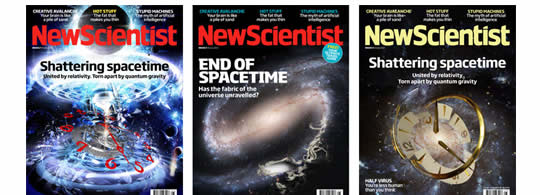New Scientist Neuromarketing Story Lives On

The latest news from the neuromarketing experiment at New Scientist magazine is that sales of their August issue were up 12% over the previous year, and seemed unusually strong for August. The cover of that issue was tweaked after Neurofocus studied The bigger news, I think, is the attention that this modest experiment has received and continues to receive.
The latest to jump on the bandwagon is the New York Times:
In early August, the British magazine New Scientist published a cover that had scored well on a test conducted by neuromarketers, who study the brain’s response to products. But the question remained: would that good review translate to sales on the newsstand?
The short answer is yes. [From NYTimes.com – Brain Waves and Newsstands by Joseph Plambeck.]
Neuromarketing press coverage seems to come in bursts, and this particular surge is probably the largest so far. It’s too bad that a year-on-year sales comparison won’t do much to convince neuromarketing skeptics that the technology is a valid tool for market research. Even New Scientist’s Graham Lawton acknowledges that the study doesn’t offer scientific proof.
Still, I think the coverage has been overwhelmingly positive, and the involvement of a publication like New Scientists both adds credibility to the field and will encourage properly controlled studies. Overall, this is a big win for Neurofocus, New Scientist, and the neuromarketing industry.
